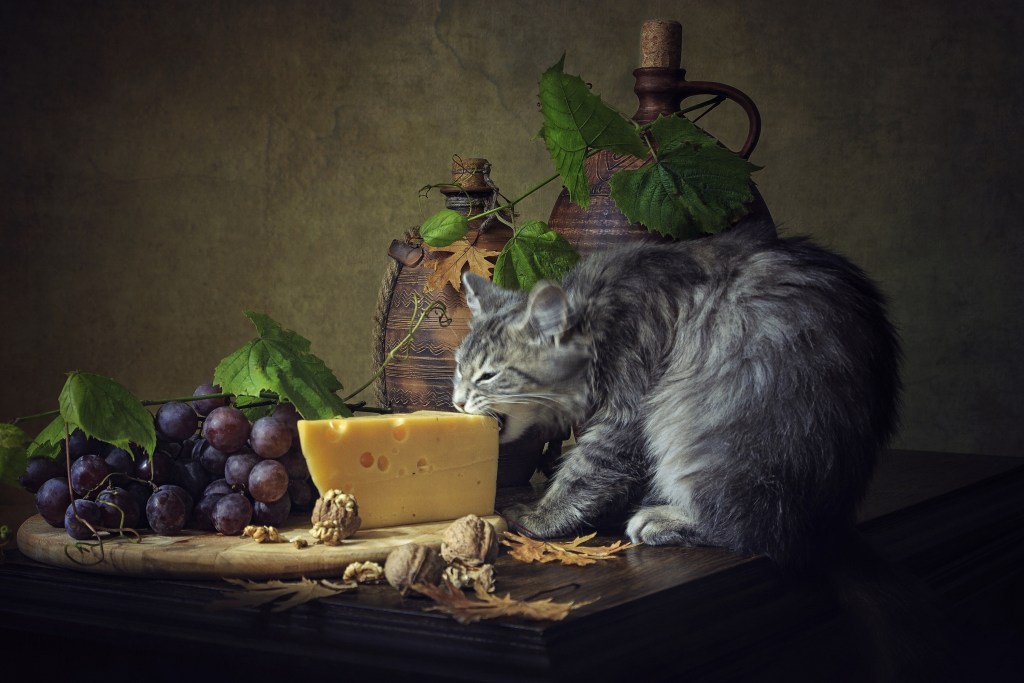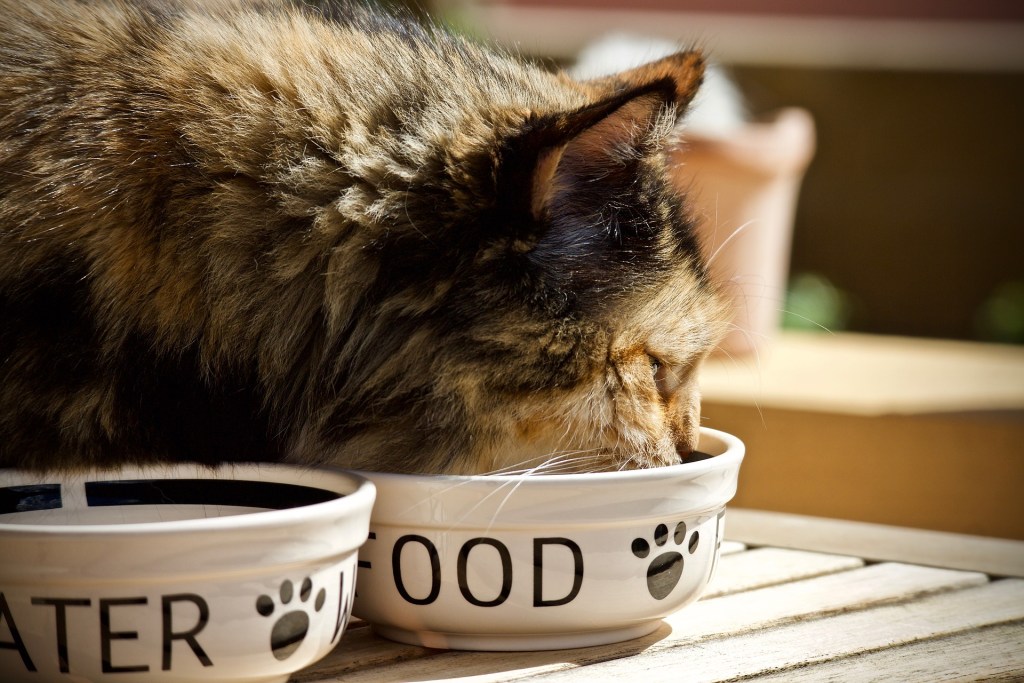Chances are, your cat has learned that all sorts of delightful foods come from the kitchen. He probably begs when you’re cutting up a chicken or other tasty-smelling food, and he may have learned to recognize the smell of cheese. But just because your cat begs for a certain food doesn’t necessarily mean you should feed it to him. Can cats eat cheese? Understanding how cheese affects your cat’s digestive system can help you decide whether you should give him this snack, and it might help you narrow down other food choices for your cat, too.
Is cheese bad for cats?
A little bit of cheese now and again isn’t necessarily bad for your cat, as long as it doesn’t disturb his digestive system. How well your cat tolerates cheese will vary from cat to cat.
Cheese can be problematic because it is a dairy product, which cats usually don’t tolerate well. Just like milk, cheese contains lactose. While humans produce a lactase enzyme capable of breaking down the lactose, cats don’t have this enzyme, so digesting lactose is difficult. Dairy products can result in diarrhea, vomiting, and other digestive issues for many cats.

Can cats eat cheese?
Some cats can eat cheese and be just fine, but cheese shouldn’t be a part of your cat’s regular diet. Cheese doesn’t provide any nutrition that cats need. Instead, their bodies are designed for meat-based diets, and they’ll get much better nutritional value out of meats.
Cheese can also be problematic for cats who need to lose weight or for cats who are on a low-sodium diet. Cheese is high in calories, so it can contribute to weight gain and make it difficult for overweight cats to lose weight.
While it’s usually best to avoid cheese entirely, your vet may approve giving your cat a little bit of cheese if it makes it easier to get your cat to take medication. Always keep these amounts minimal and consider using a different type of treat, like chicken, when possible.

Better treat alternatives for your cat
While cheese is tasty and many cats love it, cheese does pose some problems and can negatively impact your cat’s health. The good news is that there are many alternative treats that are healthier and safer for your cat.
- If you want to feed some foods that you already have in your kitchen, consider starting with meats. Chicken that’s cooked and that’s fed without the skin is great for cats. The same is true of salmon. When feeding meats, avoid highly fatty pieces and ensure that the meat is thoroughly cooked. Don’t cook meats in butter or spices before feeding them to your cat.
- Your cat may enjoy veggies from your kitchen, too. Peas, chopped carrots, and pumpkin are all great choices for your cat. They provide fiber, and foods like canned pumpkin can help relieve issues like constipation and diarrhea. Just make sure that you’re feeding pure canned pumpkin and not pumpkin pie filling, which is full of spices and additives.
- Commercially prepared cat treats are also a good choice. If your cat is on a restricted-ingredient diet, chances are you can find specially made cat treats that follow those restrictions.
If you’re looking for a way to make it easier to give your cat a pill, then consider the many products on the market. Pill Pockets are available in many flavors and are a supereasy way to conceal a pill in a tasty treat. Tomlyn’s Pill Masker works similarly, but gives you the advantage of being able to custom-fit the enclosure to the pill’s size. Both of these products are appealing to cats and can save you fights when you have to give medications regularly.
Giving your cat a little bit of cheese every now and again probably won’t harm him, as long as your cat doesn’t experience significant digestive upset. However, it’s better to feed your cat foods that offer him nutritional value and that he can more easily digest. If you do start introducing new foods to your cat, be sure to do this slowly. Sudden dietary changes with any food — even one that’s digestible for cats — can upset their stomach. Gradually introduce little bits of new foods to give your cat’s stomach a chance to adjust and to keep him healthy and comfortable during this transition.
Editors' Recommendations
- Wondering why cats chirp? Fascinating reasons why your cat chirps at birds (and you)
- How to cat-proof your balcony before the unthinkable happens
- There’s a totally normal reason cats throw up after eating grass – here’s why
- When do kittens’ eyes change colors? The answer is so cool – here’s what to know
- What you need to know about crating a cat at night



